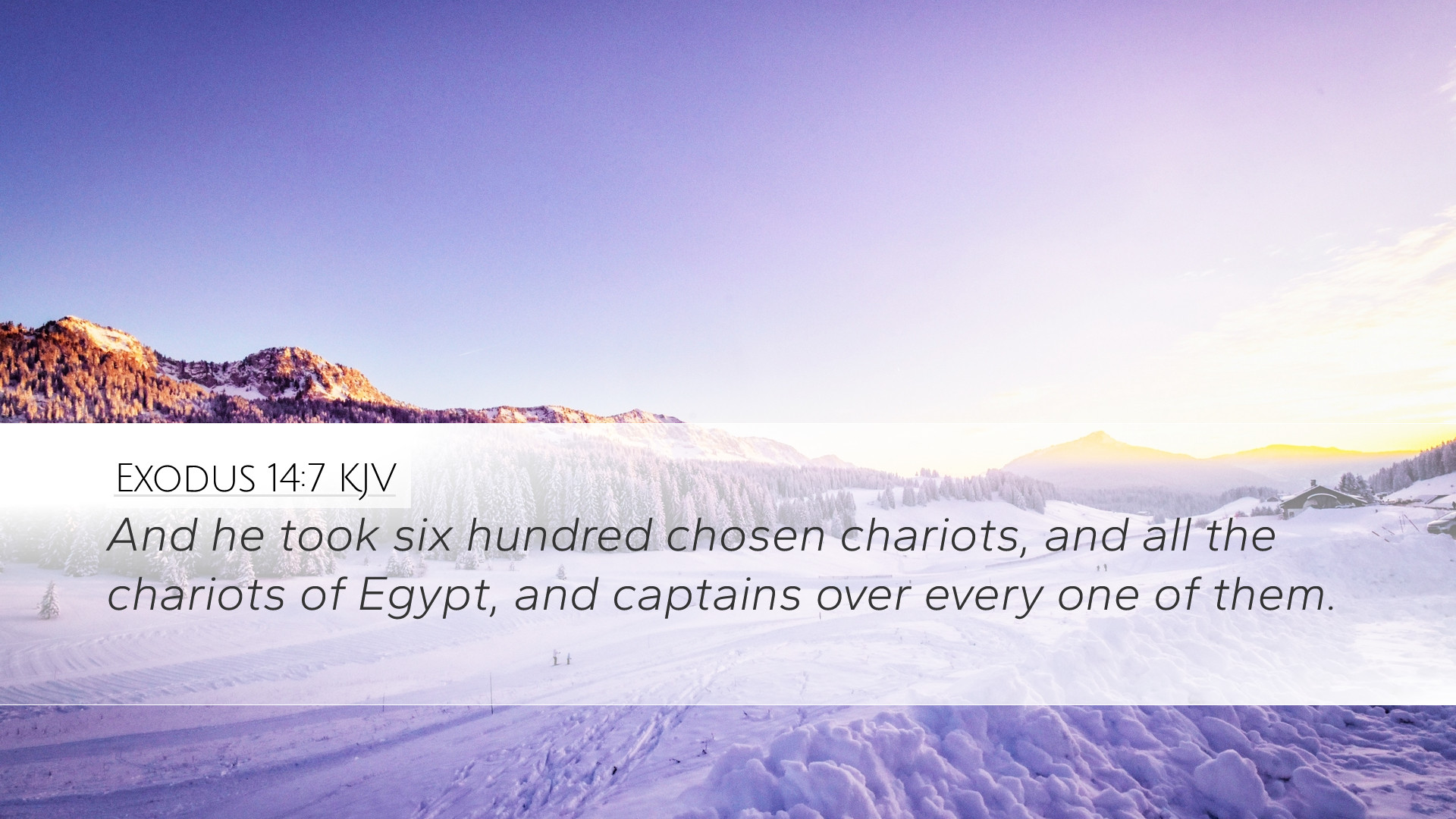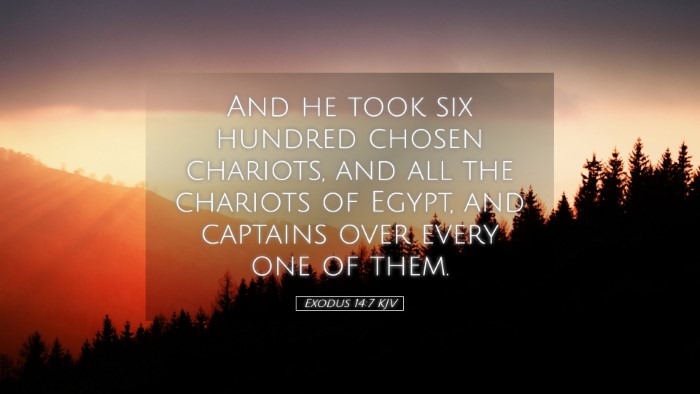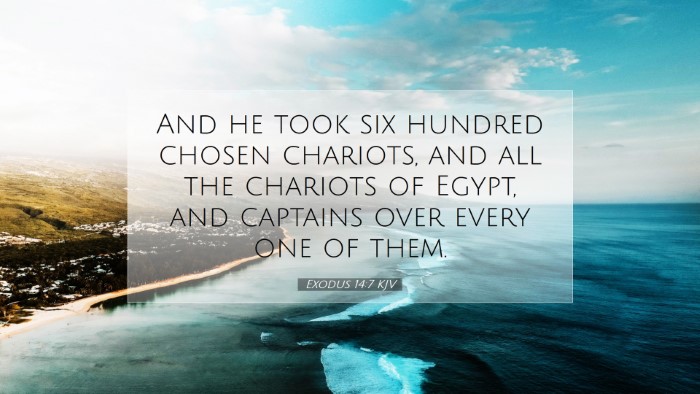Commentary on Exodus 14:7
Text of Exodus 14:7 (KJV): "And he took six hundred chosen chariots, and all the chariots of Egypt, and captains over every one of them."
Contextual Overview
This verse occurs at a pivotal moment in the Exodus narrative where Moses leads the Israelites out of slavery in Egypt. Pharaoh, having released them, changes his mind and pursues them with a formidable military force, reflecting his resolve to retain control over his former slaves. The chosen chariots symbolize the might and power of Egypt, thus setting the stage for a confrontation between divine deliverance and earthly oppression.
Insights from Public Domain Commentaries
Matthew Henry's Commentary
Matthew Henry highlights the desperation and arrogance of Pharaoh in sending his best chariots to recapture the Israelites. He notes that it signifies both his foolishness and the degree to which he underestimated the God of Israel. Henry emphasizes:
- Divine Providence: The enslavement of Israel leads to God's magnification of glory through their deliverance.
- The Nature of God’s Deliverance: The pursuit by the Egyptians is allowed by God to demonstrate His omnipotence.
- Preparation for Victory: Pharaoh's choice of six hundred chosen chariots indicates the strategic, militaristic approach contrary to reliance on God.
Albert Barnes' Notes on the Bible
Albert Barnes provides a detailed examination of the military tactics of Pharaoh, underscoring the strategic assembly of seasoned warriors in chariots. Barnes presents several relevant points:
- Symbol of Authority: The chariot serves as a representation of Egyptian military strength and authority.
- Cultural Import: Egyptian society relied heavily on chariotry, which served as a status symbol and tactical weapon.
- Contrasting Power: The might of Pharaoh’s army starkly contrasts with the seemingly helpless Israelites, thereby enhancing the miracle of their salvation.
Adam Clarke’s Commentary
Adam Clarke delves deeper into the implications of the verse in his analysis. He notes the symbolic significance of the chariots and their captains:
- Chosen Chariots: Clarke comments on the phrase "chosen chariots," implying that Pharaoh selected the elite forces, establishing a formidable threat to the fleeing Israelites.
- Representation of Judgment: The chariots can also symbolize God's impending judgment upon Egypt for their sins, acting as instruments of wrath as they pursue God’s chosen people.
- Theological Reflection: Clarke encourages readers to meditate on how God uses the oppressors’ own strength against them, transforming what was meant for evil into a pathway for divine liberation.
Theological Significance
Exodus 14:7 serves as a profound reminder of God's sovereignty in the face of human might. It offers several theological insights:
- God’s Sovereignty: The narrative illustrates that no earthly power can thwart God's deliverance. Even the greatest military might is subservient to the divine plan.
- Human Resistance: Pharaoh’s actions represent human resistance to God’s will, illustrating the futility of opposing divine decrees.
- Hope amidst Despair: For the Israelites, the pursuit of Pharaoh mirrors their fears, yet it ultimately leads to their trust in God’s power to save.
Pastoral Applications
This commentary encourages pastors and church leaders to draw relevant lessons for contemporary audiences:
- Trust in God’s Deliverance: Congregants are reminded that their struggles, much like the Israelites', are not beyond God’s intervention.
- Facing Oppression: The mighty chariots can represent various forms of oppression believers may face today and the assurance that God fights their battles.
- Faith in Testing Times: Just as the Israelites faced imminent danger, believers are encouraged to maintain faith in God's promises during their trials.
Conclusion
Exodus 14:7 is not just a historical account but a rich theological narrative that serves as a reminder of God's control over situations that seem dire. The reflection on the actions of Pharaoh and the might of Egypt invites deeper meditation on the nature of faith, divine sovereignty, and the importance of trusting in God amidst challenges.


